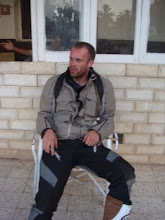Among the great books recently written in political science, Bueno de Mesquita et al's The Logic of Political Survival must make the list. It basically tackles a fundamental question of political science: why is it that bad governments (particularly undemocratic ones) can survive for so long? To make the long story short, they argue that governments with medium-sized selectorates (which is a generalization of electorates to include non-democratic selection processes) are able to survive by enriching their selectorates at the cost of the larger public. This works best for selectorates which aren't too small, because when they are too small it's easier for someone else to put together an opposing and winning coalition (think of military coups). And in selectorates which are too large it becomes more efficient to allocate goods on more fair grounds. In medium-sized selectorates a bad leader can stay in power for a long time. For the case of Zimbabwe, that seems to be what this article is demonstrating.
Mugabe is basically allowing his presidential guard to thoroughly pillage Zimbabwe by taking advantage of things only available to those in the selectorate: favourable and contrived exchange rates on US dollars, cheap gasoline, and (until recently) productive and well-kept farms. This hardly proves Bueno de Mesquita et al's argument (indeed, it is open to some real criticism). But it does a nice job of illustrating it.
Subscribe to:
Post Comments (Atom)

2 comments:
Thanks for bringing this work to my attention. I don't find his conclusions to be shocking revelations - and I doubt you do either. But I do like his word: Selectorates. Very useful. I guarantee I shall use it in future.
Happy Birthday! Hope you have a great day!
Post a Comment